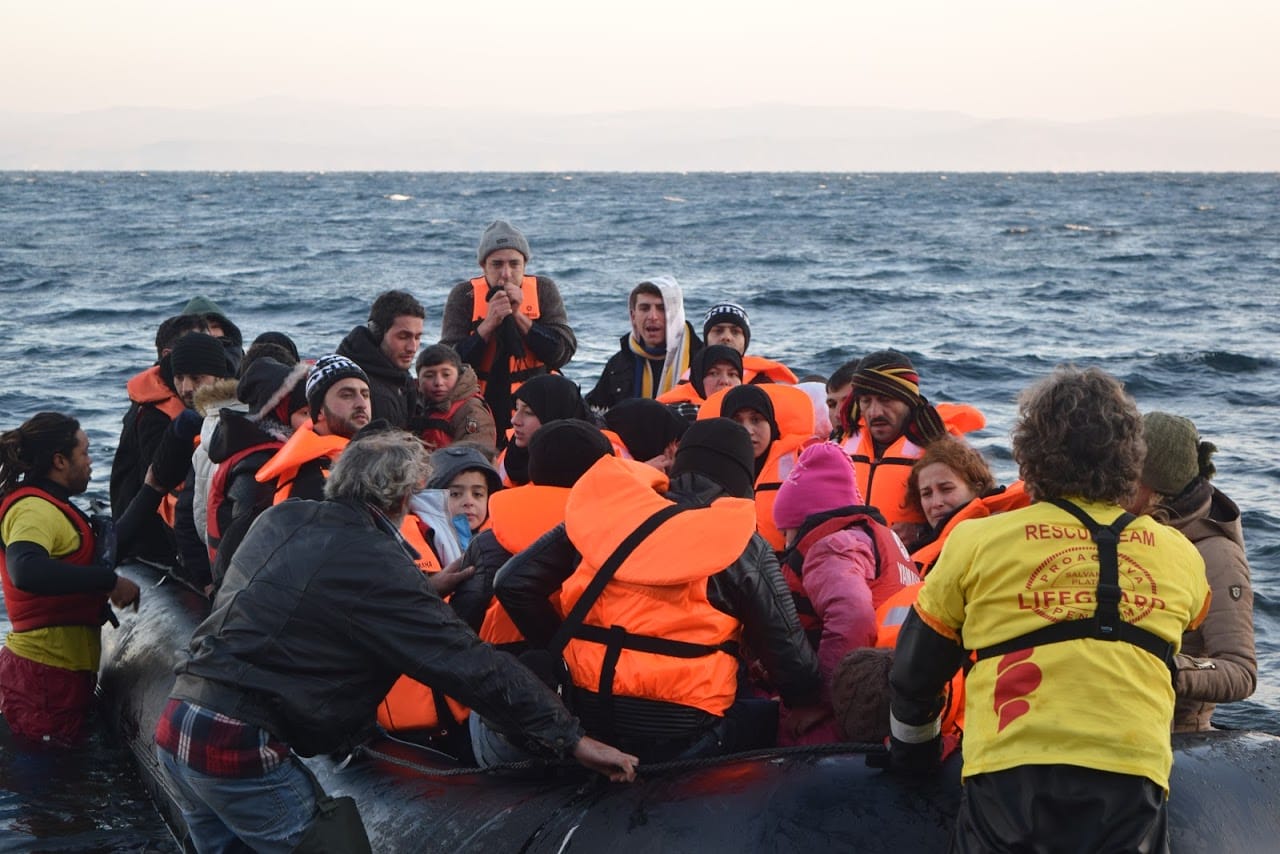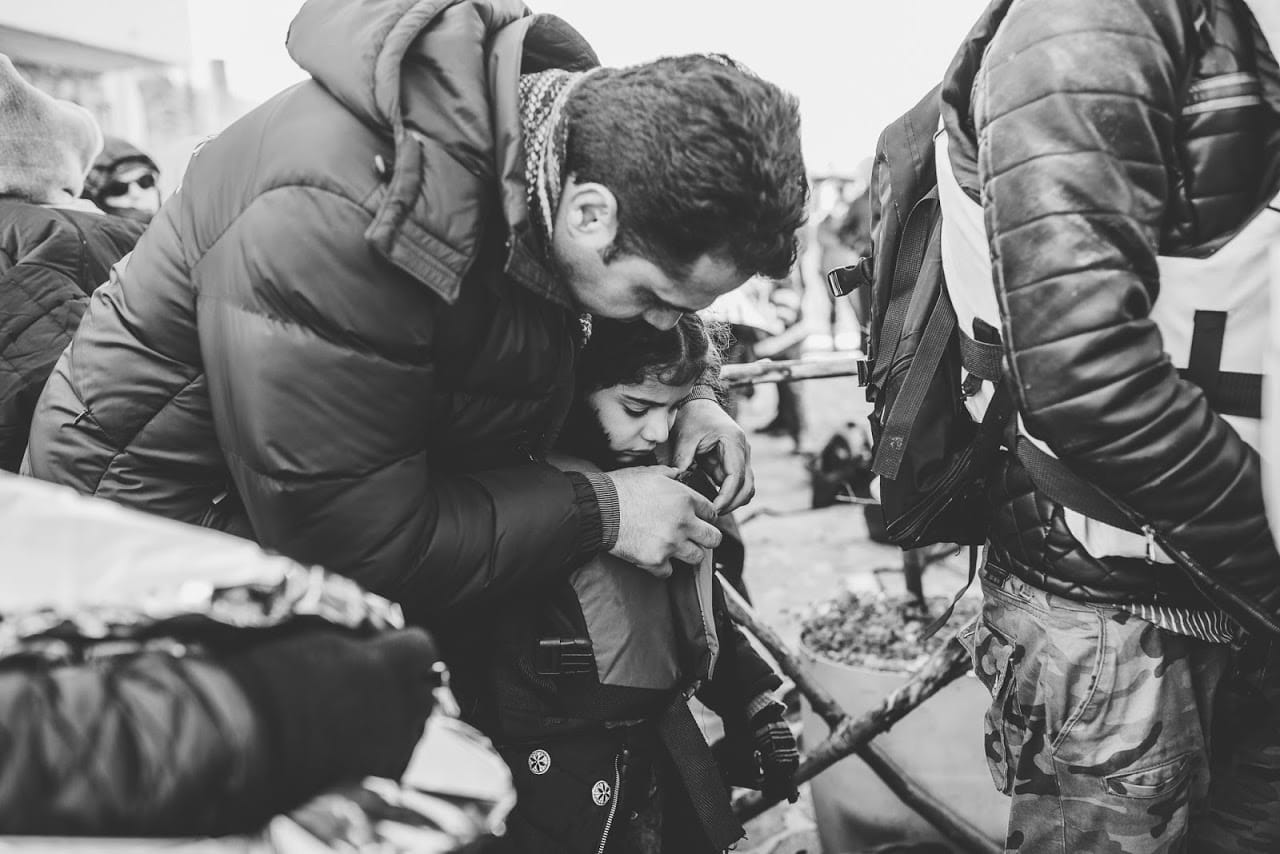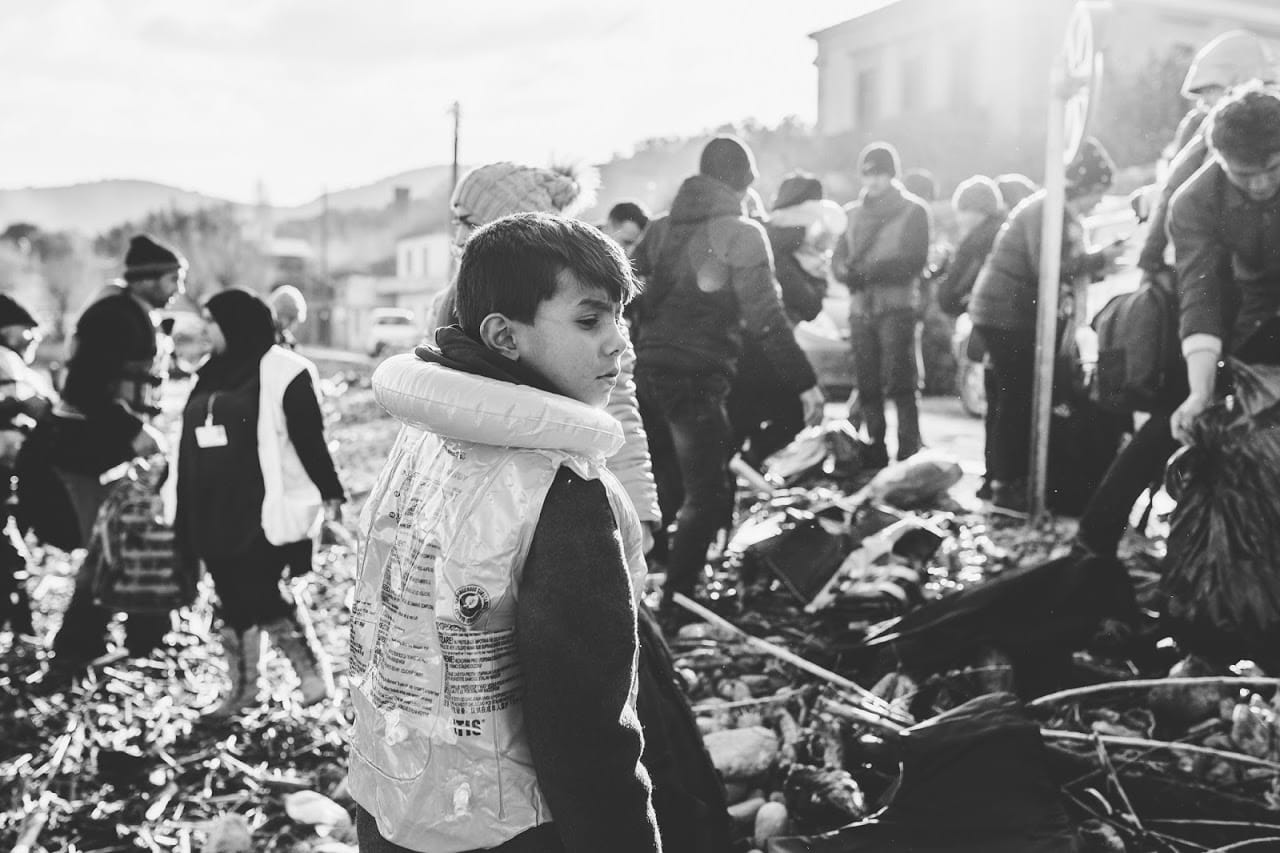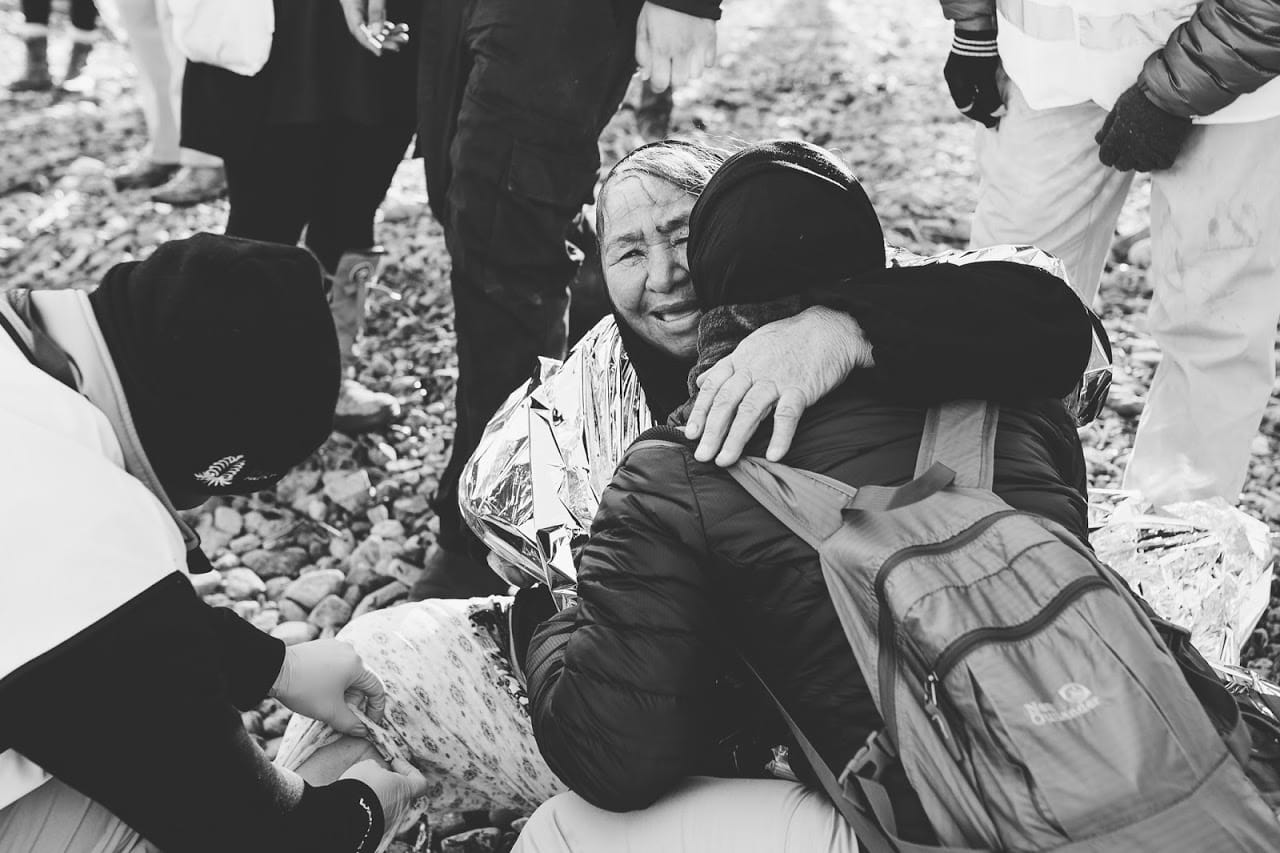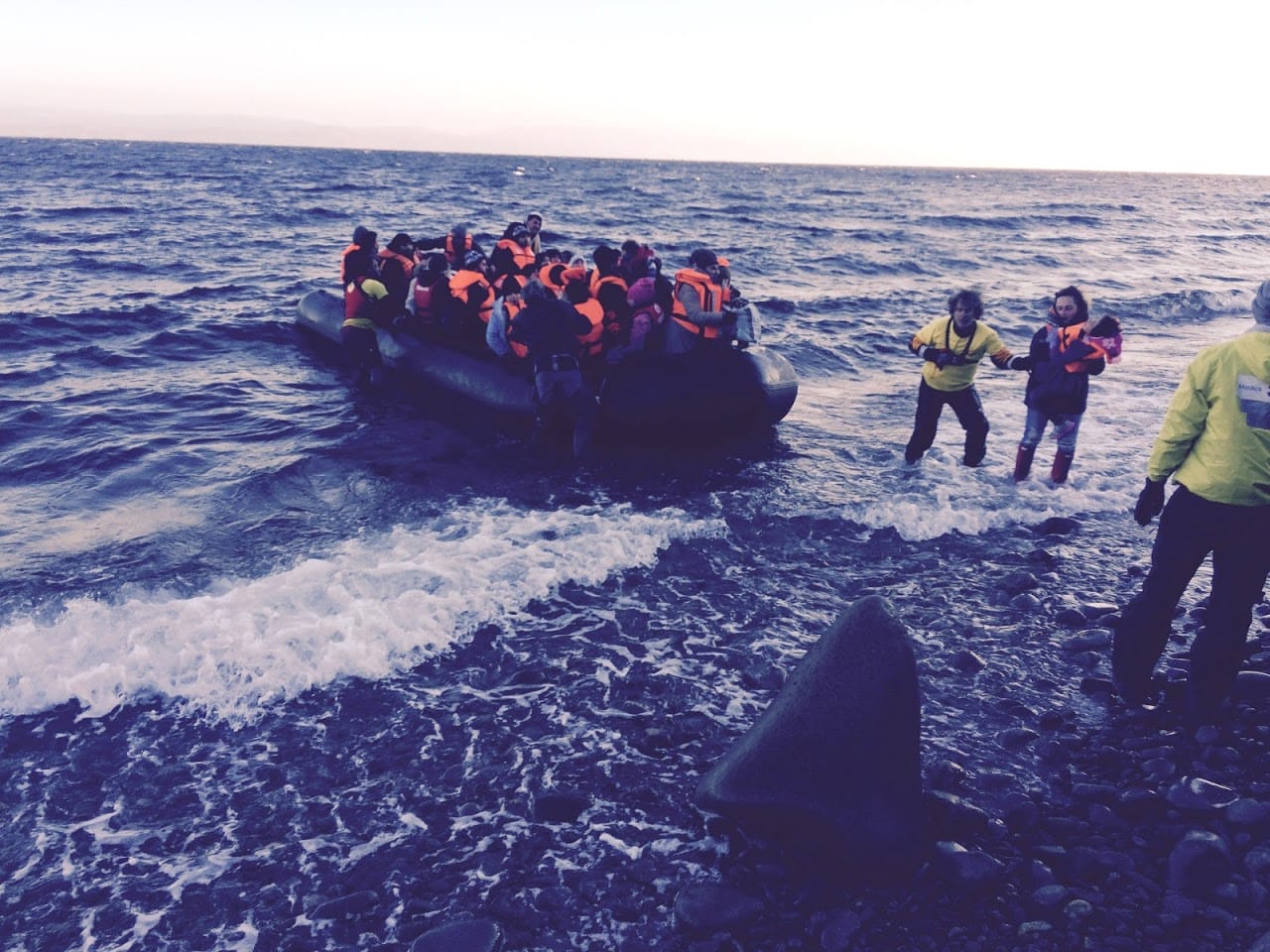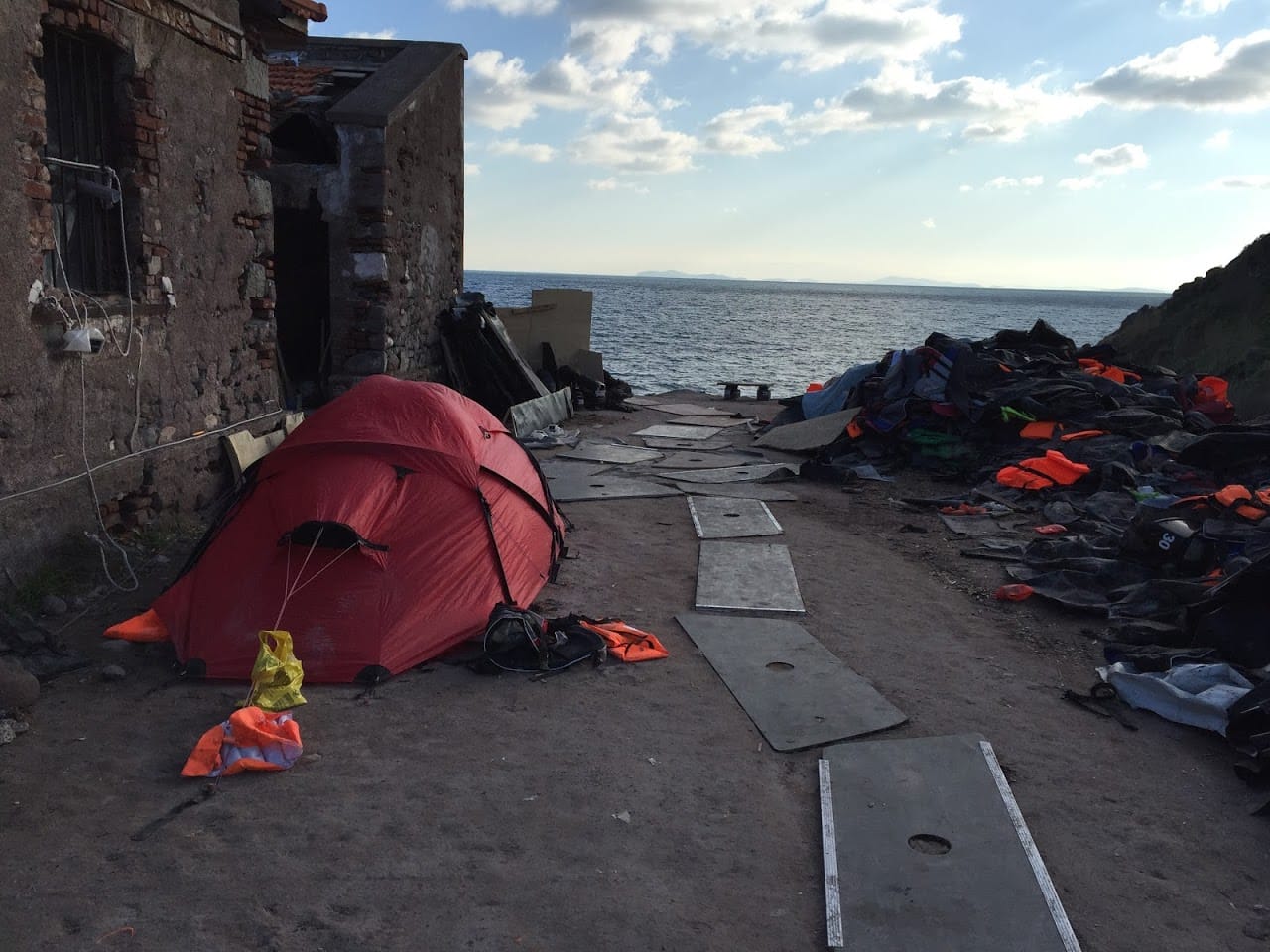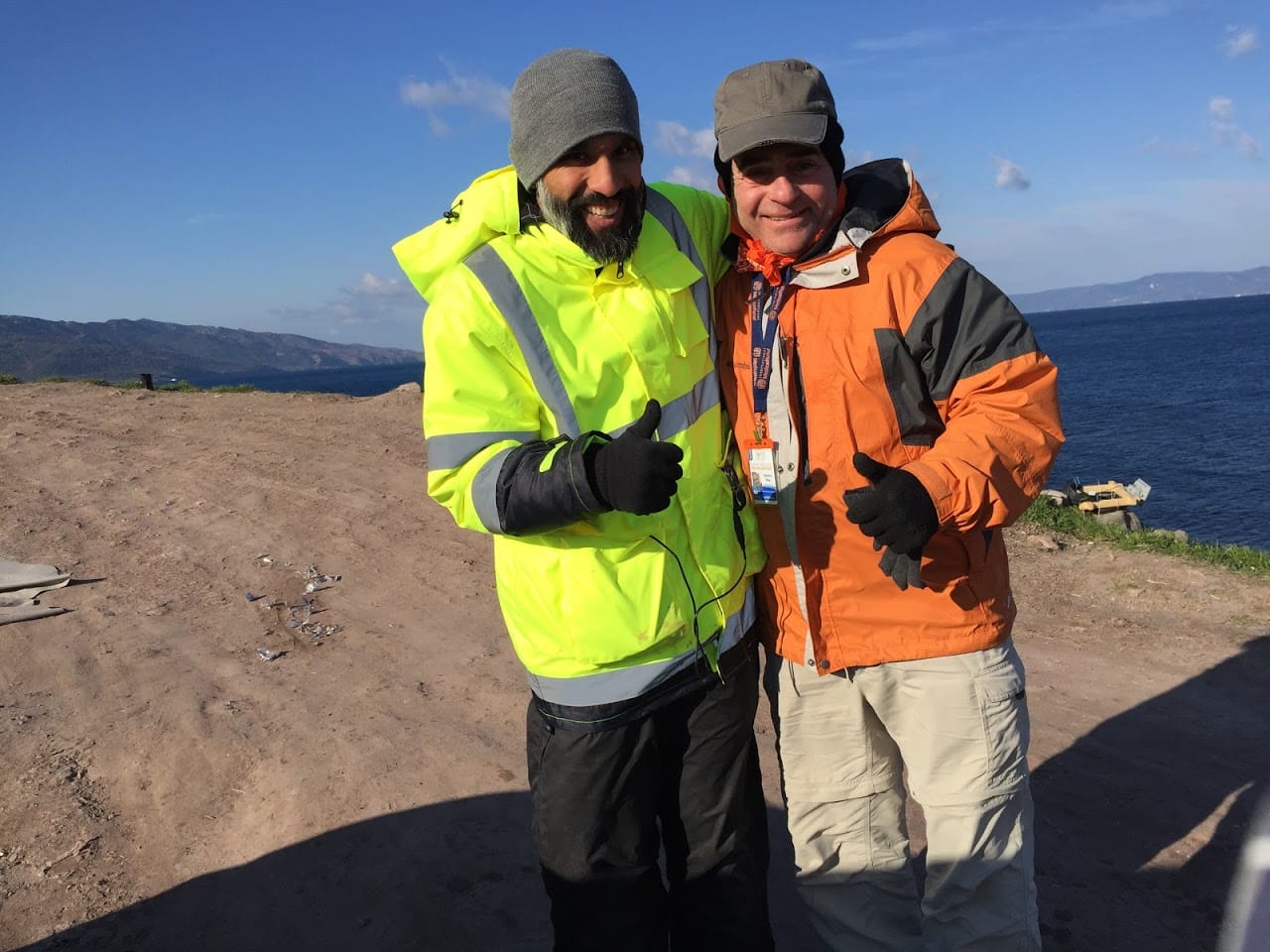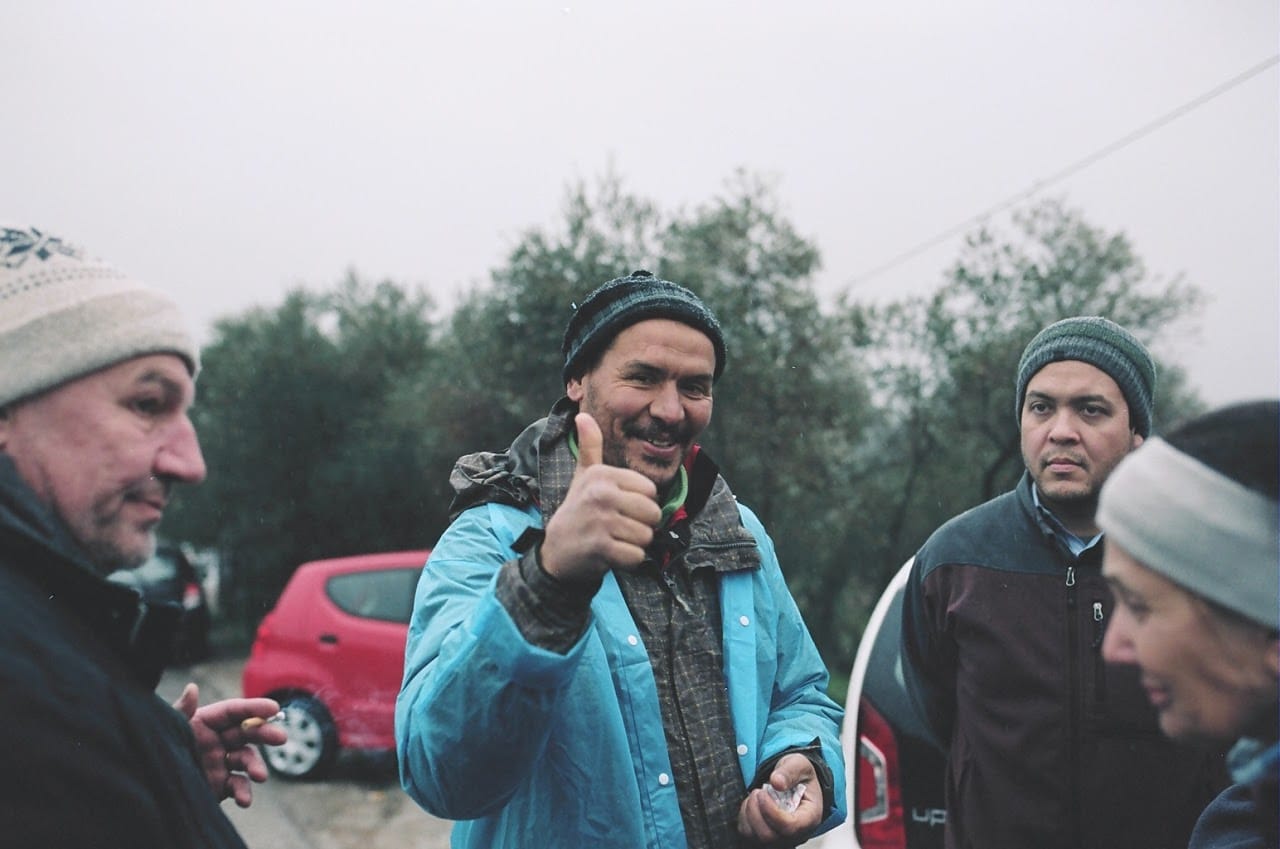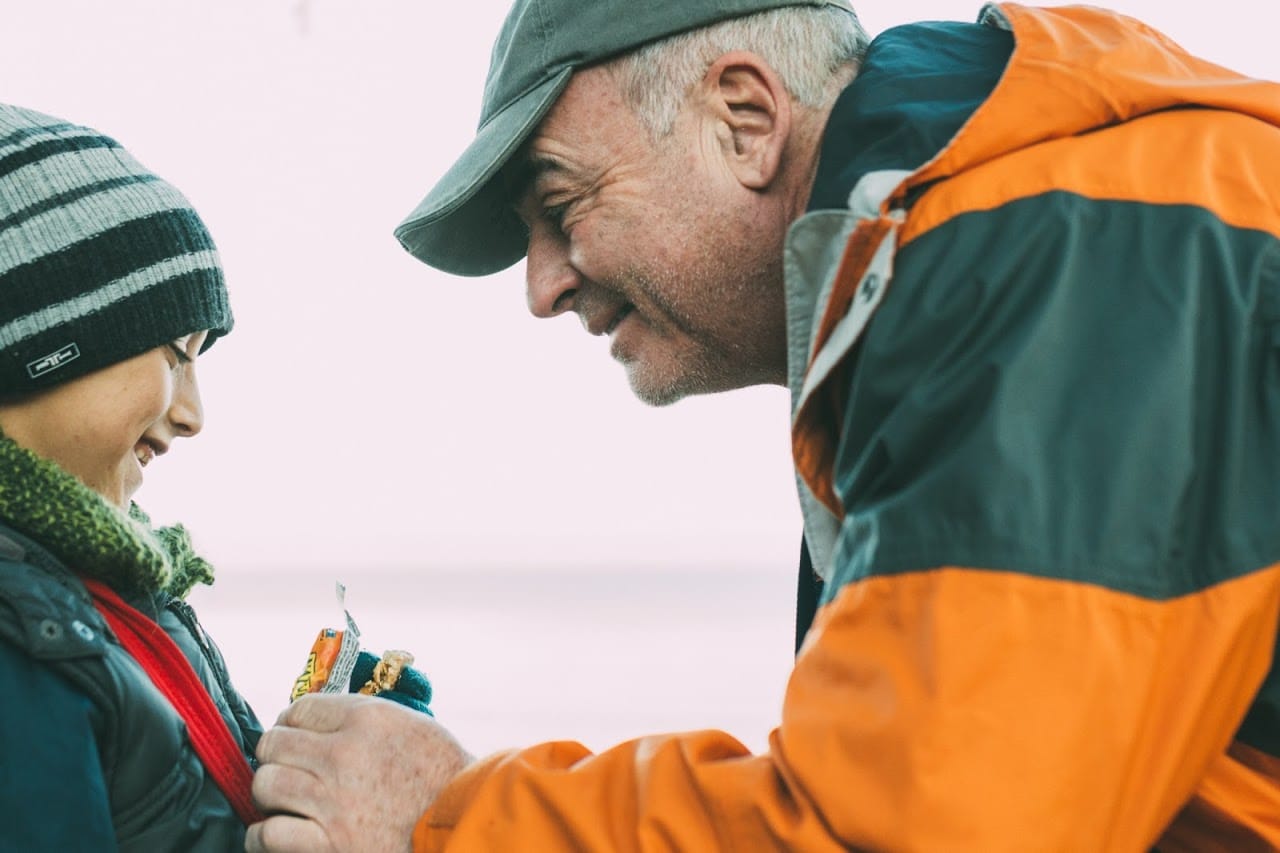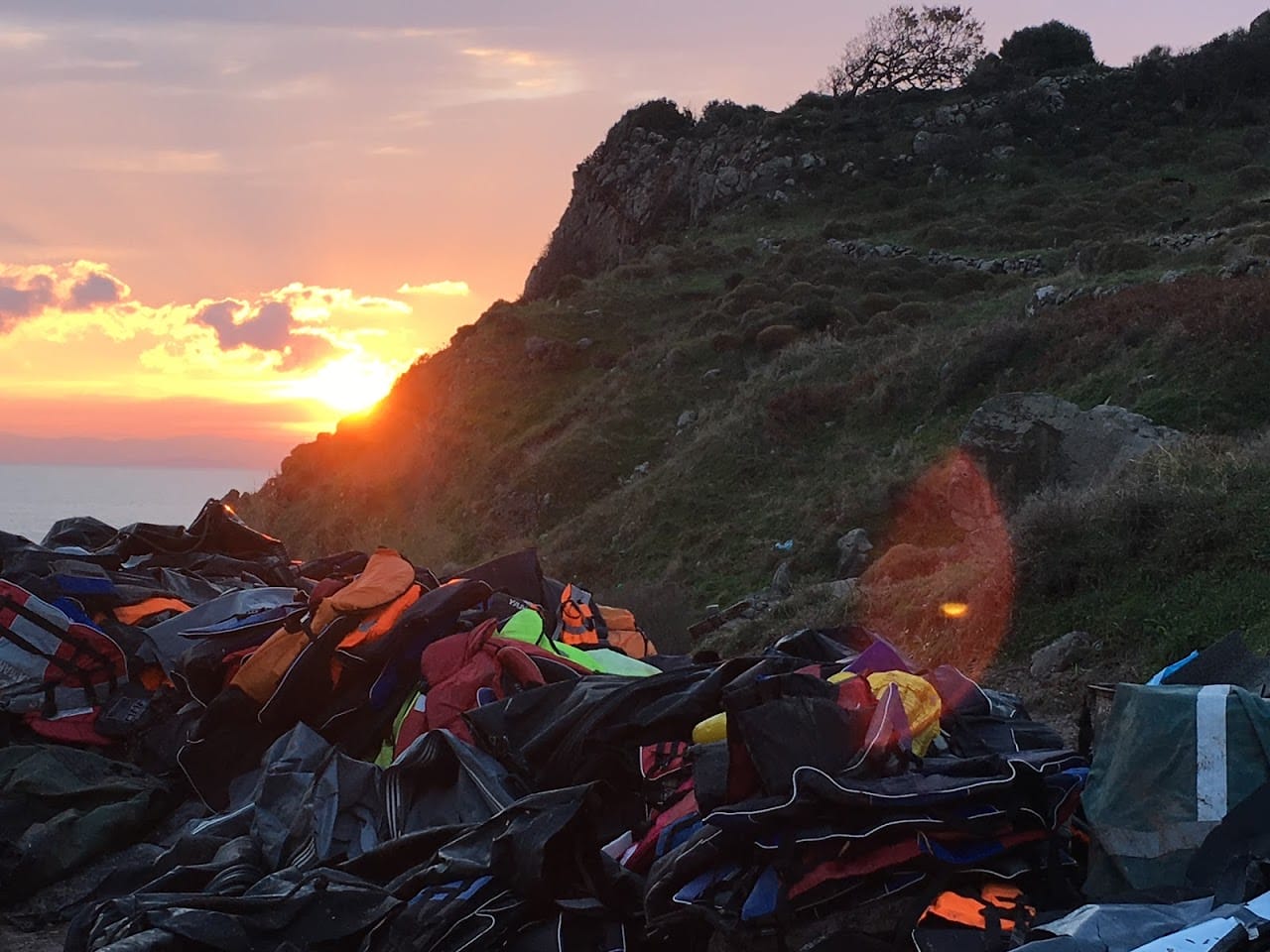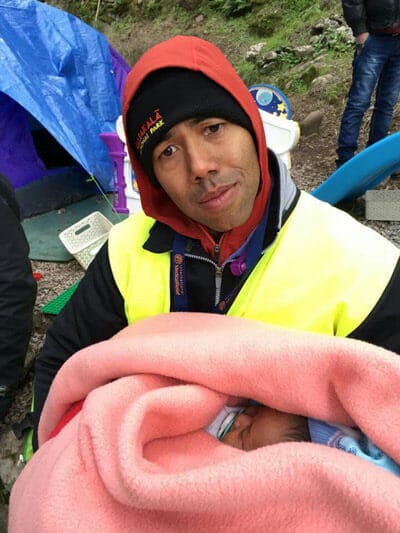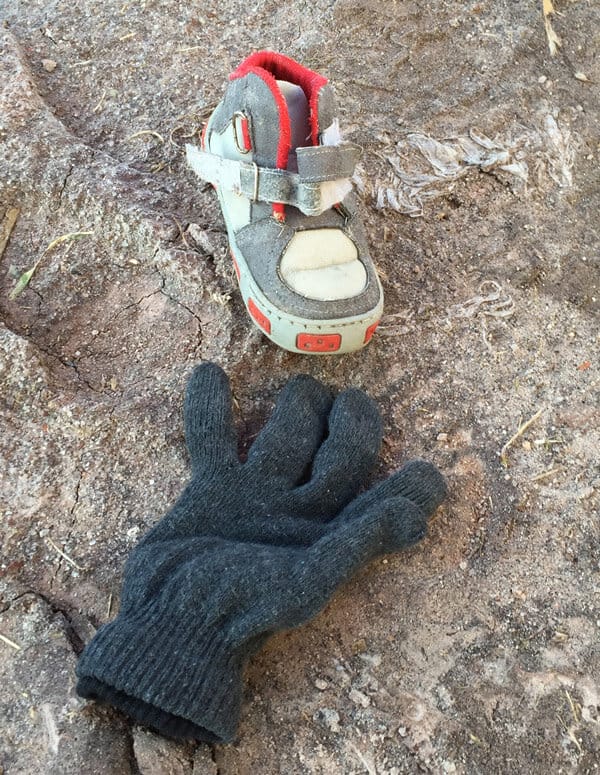Greece – Syrian Refugee Relief January 2016

After almost five years of conflict, Syria remains the most complex humanitarian emergency in the world. Since the conflict began over 250,000 people have been killed and 1.25 million have been injured. The violence has forced the displacement of 6.5 million people internally and 4.18 million people have sought refuge in neighboring countries. Roughly one million people have fled their homes this year alone, some of them for the second or third time. Humanitarian needs within Syria have reached extraordinary levels with 13.5 million people in need of humanitarian assistance.
The health system has been devastated by the conflict with fewer than 22 health workers per 10,000 people. Before the conflict, Syria boasted a population of 117,000 medical doctors but as of 2015 only 37,000 remain. In Allepo, there are only 36 doctors for a population of 2.5 million. In many cases, the remaining health workers are providing care way beyond their scope of practice, with midwives even attempting cesarean sections. The ability of the health systems to provide services has also deteriorated substantially with only one hospital for every 400,000 people. As a result of the growing shortfalls in service delivery, the international aid community has attempted to fill the gap and is currently providing 67% of all medical services in the country.

Everyone around us needed help…
Every day is completely different than the day before. The situation here is so fluid that you have to be able to expect anything – both physically and mentally.
As a direct result of the ferry strike, there were over 5,000 (some estimates say 7,000) refugees the last couple of days at the camp. There were long, never-ending lines for tea, food and clothes. The clinic was filled with back-to-back patients. Spaces in the compounds had run out and that left so many people in the tents and many others outside with nothing more than a wool blanket around them. Boats continued to come in, creating chaos everywhere. We had to do so much crowd control, tend to so many people. It was overwhelming.
Everyone around us needed help. I hate it when it’s like this because you’re forced to focus on taking care of as many problems as you possibly can rather than focusing on taking care of the refugees as best as you can. Doing the former will eventually desensitize you and that’s one of my biggest fears here. I don’t want my heart to hurt less over time. I don’t want to get use to this.
But finally last night, the port was filled with so many people getting ready to leave for Athens. I was shocked that all those people there were squeezed into this small camp. I was so happy to bid so many of them farewell. They had been waiting to leave the camp for days. With the donation money, we purchased a lot of ferry tickets, as well as bus tickets from Athens to Macedonia. This is one of the best ways to financially support a refugee because it allows them to save their own funds for the rest of their upcoming long journey.
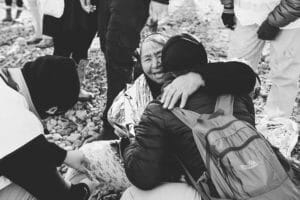
Babies, grandparents, children without parents…
Today, we participated in the rescue of two boats with 64 total people before we even got to clinic! But they are not just people, they are babies, parents, grandparents, children without parents, all leaving something important behind to start something new in a better place.
As they reached the shore, children were crying in fear and from the bitter cold, but parents were crying in triumph for having made it and in anguish for what was left behind.
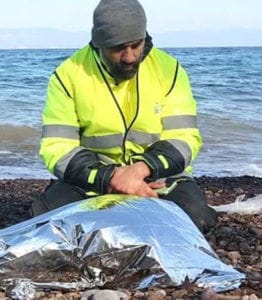
We scrambled down to the beach…
As we drove the winding and rutted road to clinic in two cars, we saw boats approaching at an incorrect landing zone. We tried to wave them off, but the current is very strong and the waves are rough. When it became clear they were landing, we stopped the cars on the road and scrambled down to the beach along with a rescue team that also saw the boats approaching.
As the boat rescue team entered the water, they handed off the children and elderly to the IMR team, where we performed rapid triage and got them out of life jackets and into space blankets, generously donated by our team member, Barbara. Shaheen, our recent medical school graduate; Jamal, our dentist; and Razi, one of our medical staff and a community organizer all began translating like crazy. NP Anita, RN Erika, medical staffer Melanie, and team leaders/car drivers David and Amy (EMT) worked quickly and efficiently to get the patients triaged and into our cars for the short drive to the medical tents in a camp we are partnering with. The staff at the camp and our team worked quickly to get everyone into dry clothes and drinking hot tea in the warming tents.
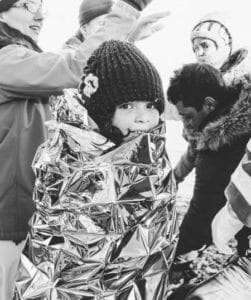
It’s going to take a while for me to try and process the things I’ve seen…
Spent the day in Athens and will be making the long journey home in a few hours, but I left a piece of my heart in Lesvos today. It’s going to take a while for me to try and process the things I’ve seen and experienced during my time here, but I am so grateful for the opportunity to have played a small role in something so significant. To see people from around the world come together to help innocent people on their journey to a better life was an incredible thing, and it has changed the way I see the world. I will spend every day thinking about the five-year-old girl that fell asleep in my arms, and every child like her that has to suffer through living a life of uncertainty because of war and hate. We must strive to open our hearts and be kind to one another, because peace cannot be found without it.
“I have decided to stick with love, for hate is too great a burden to bear.”
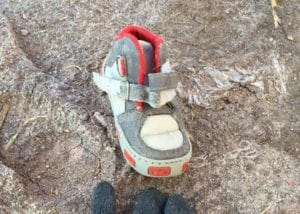
The lighthouse, the most dangerous point to land…
Some of our team remained back at our guest house to rest before going to work in the cold night at the lighthouse. Here their role is primarily watching for boats headed for the lighthouse – the most dangerous point to land. If a boat does come crashing to shore – as they do 2 or 3 times per week –rescue divers will bring them in from the water and our team is responsible for performing emergency services as required.
Join Us in Making a Difference.
Bring much-needed acute medical and dental care to a beautiful, culture-rich destination. You can join an IMR medical mission team today!

